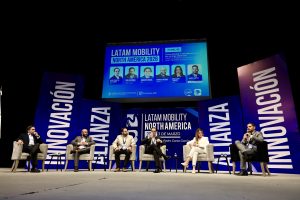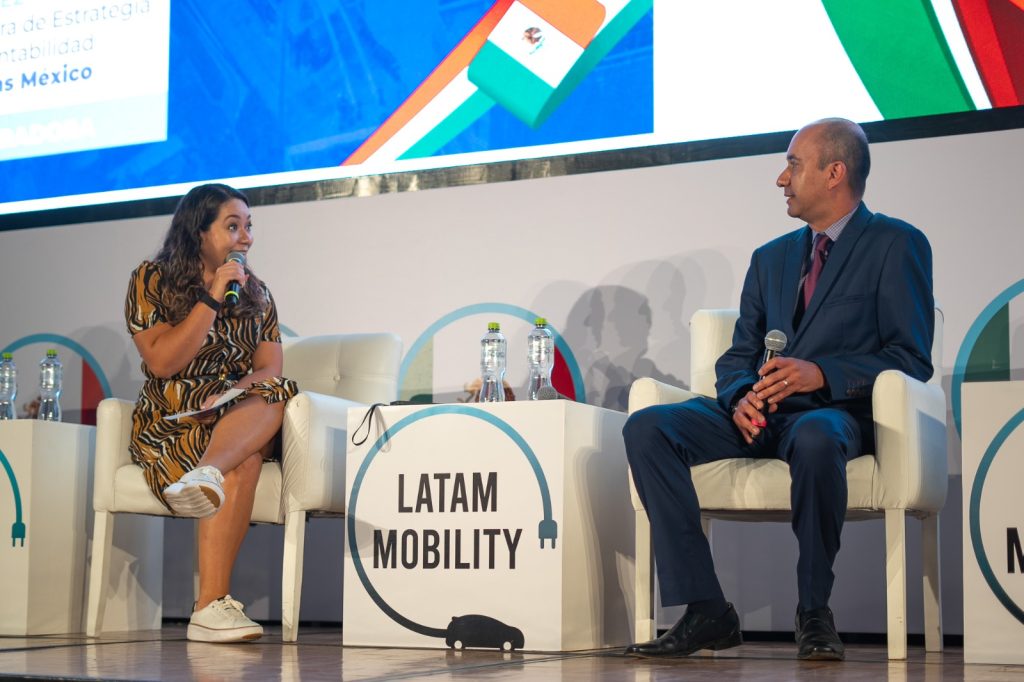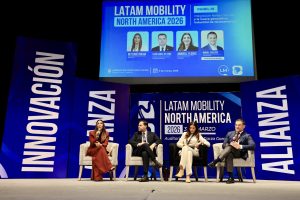
Bimbo and Siemens Lead the Way to Zero Emissions through Electromobility

The summit “Latam Mobility: Mexico 2023” had a prestigious space led by Siemens and Grupo Bimbo, companies that through their leaders shared experiences in the promotion of sustainable mobility.
The “Siemens and Bimbo: Baking the path to net zero: accelerating the sustainability roadmap through electromobility” was moderated by Valeria Rivera Álvarez, Director of Strategy and Sustainability Siemens Mexico.
The executive highlighted the company’s trajectory for more than 100 years in Mexico and the world, which gave way to the presentation of Grupo Bimbo as an ally and success story in the transition of fleets.

Sustainable Mobility Pioneers
Rodolfo Emanuel Álvarez Chávez, Global Manager of Technical Studies at Bimbo, was the special guest at the conversation led by Siemens to present the progress of the company’s sustainable strategy.
“The sustainability strategy is a great commitment. Scopes 1, 2 and 3 are the entire operation and an important part of the delivery fleet for CO2 reduction,” he said.
He detailed that the focus is on reducing emissions in scopes 1 and 3 by 2050, a goal he assures they will achieve through plans developed by the company.
“Collaboration is key in all elements of the ecosystem of those involved in the process. We are doing planning in the renovation, there we want to take advantage to make technology change to electric vehicles,” Alvarez said.
“We migrate from electromobility to something that encompasses everything as sustainable mobility, that is our big project. With the plan to 2030, 2040 and 2050 globally in fleet renewal, we expect growth with this new technology,” he explained.
He stressed that Grupo Bimbo has been a pioneer in sustainable mobility since 1994 when they decided to manufacture, in alliance with manufacturers, vehicles that did not exist in the market for delivery operations.
“Today the challenge continues, we have more options in the market, we have the infrastructure, our own charging facilities without depending on public charging,” he concluded.





